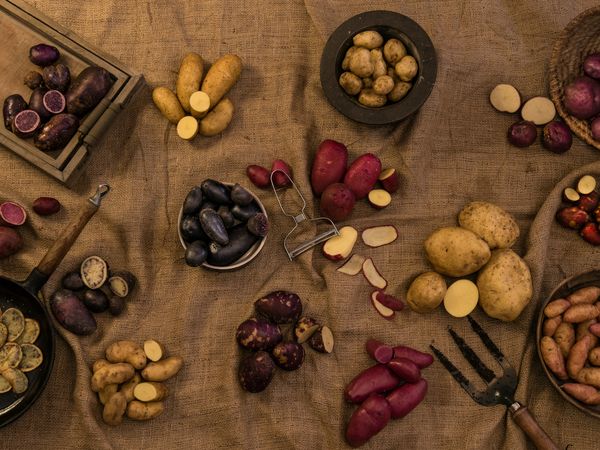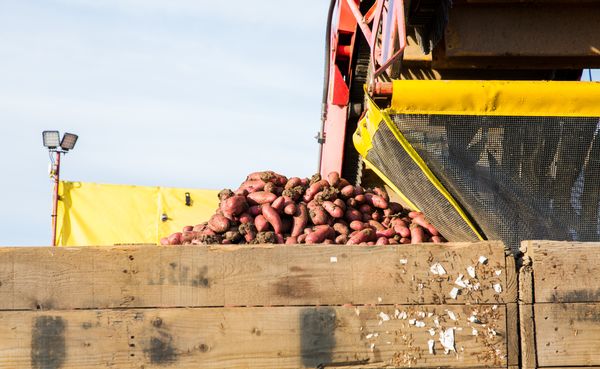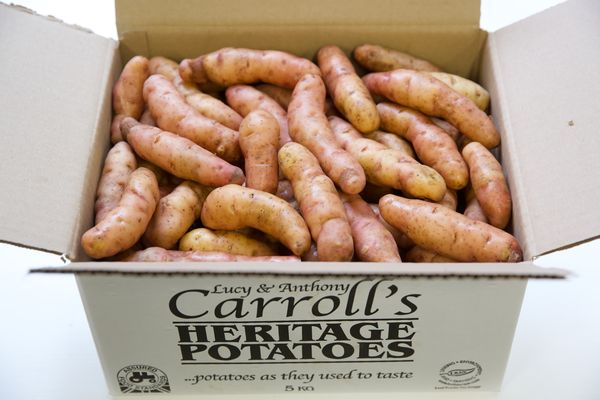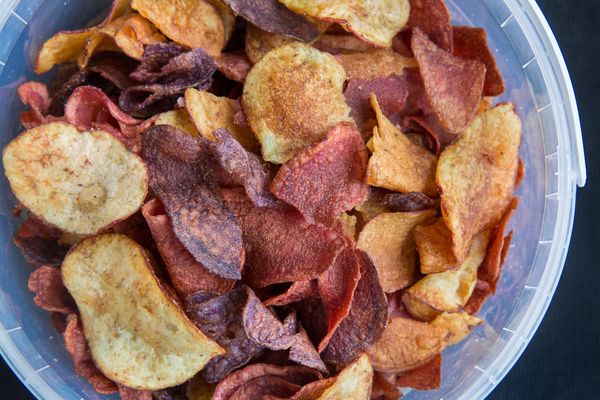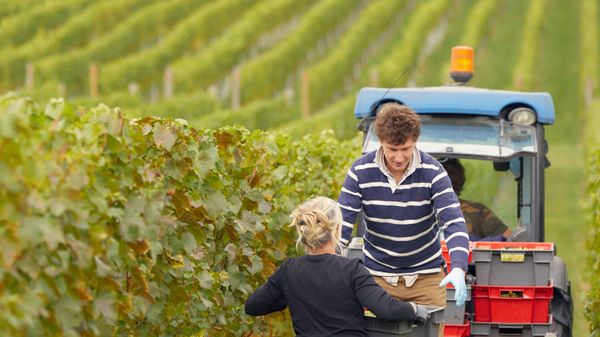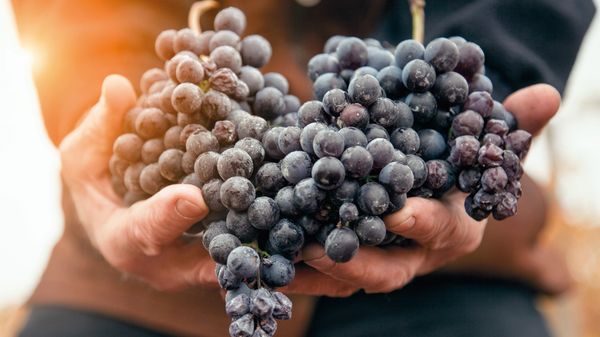
Sustainability in luxury dining: Carroll’s Heritage Potatoes, producer of sustainable agriculture
Carroll’s Heritage Potatoes is a small family business based in rural North Northumberland at Tiptoe Farm. Lucy and Anthony Carroll as well as their team work hard to grow, harvest, pack and distribute approximately 14 unique varieties of heritage potatoes, chosen for their gourmet eating qualities by Michelin-starred restaurants.
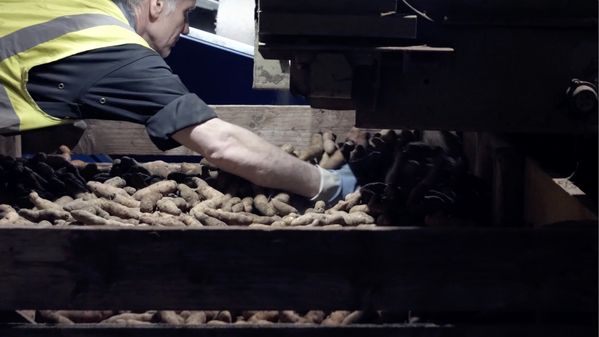

“Lucy and Anthony Carroll have painstakingly reintroduced many varieties of potatoes that would have become extinct because farmers no longer want to plant them due to the demand of supermarkets wanting uniform-sized, large, smooth and well-rounded skin-tone potatoes. In their potatoes, you taste the potato and taste it at its very best.” – Cyrus Todiwala OBE
“What has always impressed me is how they researched historical varieties of potatoes, some hundreds of years old, and brought them back to life… So, the Carrolls started growing multiple varieties from the vivid Red Emilie to the indigo Arran Victory, to the gloriously floury Mayan Gold (making incredible roast potatoes). They farm organically, and sustainably, on a beautiful farm in North Northumberland. And have done so much to promote old, historic and thrilling varieties of potato that would have otherwise been lost in the mists of time.” – Tom Parker Bowles
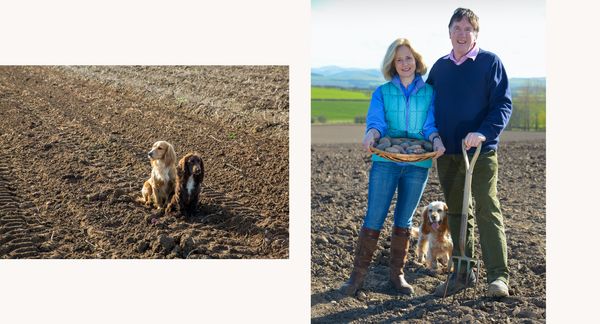

How did you decide to start your journey and where has the experience come from?
In the 1980’s Anthony and I grew commercial potatoes for a number of years, and we were becoming disillusioned as we are a small-scale farm compared to other potato growers. Therefore, we were not an important part of the supply chain and in a year of plenty we could be left high and dry.
We felt that the wrong emphasis was being placed on growing potatoes. What had become important was regularity. They all had to be a uniform size with perfect, shiny skin and easily peeled. A great deal of this was due to supermarkets and also potato processors preferring spuds that were easy to process into ready made croquets or products like that.
While growing commercial modern varieties Anthony and I also grew a couple of varieties in the garden, and we loved their taste and the way they cooked.
We had a light bulb moment! We decided to trial a small row in the field and took them to our local farmer’s market in Berwick-upon-Tweed. We met so many interesting people, and they all loved the taste, history and cooking characteristics of the varieties, which ignited our light bulb moment further, and it felt very exciting! We loved hearing the customer satisfaction.
We had nothing against ordinary, modern varieties of potatoes or those growing them, they do give a higher yield than the older varieties, but we were just not enjoying producing them. We worked with a co-op who sold into pack houses, and we had nothing to do with where our produce went, how they were used, or whether anyone was enjoying them. So, no job satisfaction!
We had a vague feeling that we wanted to bring something to the hospitality market that was different, had an impact, and gave us the knowledge of exactly where our potatoes went and for what use.
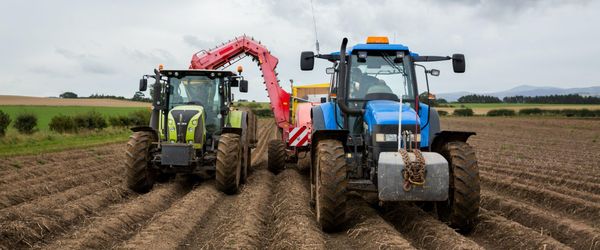
‘What has always impressed me is how they researched historical varieties of potatoes, some hundreds of years old, and brought them back to life…’
Tom Parker Bowles

You reintroduced many varieties of potatoes that would have become extinct, can you share with us how do you do it?
When we first started the business in 1985 we grew about 25 different varieties, and now we grow between 12-15 annually of the ones that are more popular with our hospitality / chef customers.
We work with a seed grower who helps us to multiply the seed, and we always try to introduce a guest variety each year to trial.
Through our relationships with the chefs we work with, we get to know what they need and what is missing. We are always on the look out to provide a gap in the potato supply!
What challenges did you face when you started growing the many varieties of heritage potatoes?
They are more difficult to grow than conventional varieties, as they are susceptible to disease, so they need more management. They each have their difficulties. For instance, the Pink Fir Apple is long and knobbly, and difficult to harvest, because of the shape. They need careful handling!

What is your personal favourite historical potatoes?
That question is like asking me which is my favourite child! I serioulsy love them all, as they all have their own wonderful history.
However, I will answer your question by telling you about one special variety that is from very close to home that has a great local history called Mr Little’s Yetholm Gypsy 1899. This heritage potato is quite distinctive with a swirled red, white and blue skin colour and a white floury flesh. The name was developed from the borders town of Yetholm, where Mr Little lived. Yetholm is the gypsy capital of Scotland. They are a forgotten food and registered with the Slow Food.
How does an average day look like at Tiptoe Farm?
We start the day at 6am and in the office at 7am to prepare for the day. Staff begin work at 8am, so we all meet and plan the day for production. Lucy is in the office while Anthony is more often outside.
Lucy’s day is spent managing the administrative office, and the small team, speaking to chef / restaurant / hospitality customers, and administration involved with customers orders, including marketing, communication and transport. Anthony’s day involves work outside in production and fields, as well as business planning indoors. In the early spring we prepare to plant about April. April – June is spent caring for the plants. Harvest is weekly through the summer months with a final harvest in September.
Our work is never finished, so we are often working long hours. We live work, play here on the farm. We love it!

Where do you see industry going?
The last year has been difficult and very very sad with many of our chefs / hospitality customers having to close their businesses temporarily but some permanently.
However, many have remained busy with prepared meals and deliveries, which has meant we have kept up the supply. We can only hope that the hospitality industry recovers and becomes stronger.
We believe a stronger representation at the government level will help so we agree with the campaign for a minister for hospitality to really communicate on behalf of a wonderful industry that has had a hard knock in the last year with the effects of the pandemic. We are now responsible for the next generation to make sure the industry is supported well, and can flourish.
How did you feel once you found out that you were nominated for the Respected by Gaggenau initiative?
We felt very honoured that Cyrus thought of nominating us for the Respected by Gaggenau initiative. We have worked with Cyrus since we started our business, and we have visited his restaurant in London, and we share the same sustainability ethos.
I know a lot more about Gagganau kitchen products now and I applaud Gagganau for thinking about highlighting and connecting producers, and makers of wonderful unique products.
This is certainly the year to launch an initiative to search for artisans, farmers, and makers. The result will bring us closer together, when we have not been able to work as normal, due to the pandemic.
We really did not expect to be short listed, as we are only a small farm, and there was some strong competition. We feel very proud.
To be shortlisted has given our small business some credibility, and we feel proud when we tell people.

